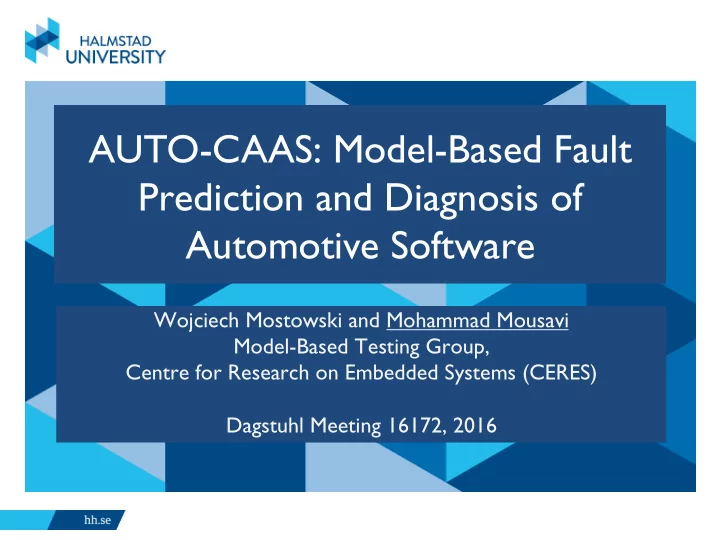

AUTO-CAAS: Model-Based Fault Prediction and Diagnosis of Automotive Software Wojciech Mostowski and Mohammad Mousavi Model-Based Testing Group, Centre for Research on Embedded Systems (CERES) Dagstuhl Meeting 16172, 2016
Elevator pitch Bug fi xing is like dying: Denial è Anger è Acceptance Demonstrating probability and severity to facilitate the process Using machine learning to capture all failing scenarios Context: AUTOSAR software 2
Motivation • Automotive Open System Architecture – AUTOSAR • To enable pluggable components and multiple vendors • Room for interpretation and optimisation – Intentional and inadvertent speci fi cation loopholes – Speci fi c implementations differ (from each other and from the spec) • Results in non-conformant components • Can lead to serious problems in integration • Research question – measure the severity, find the consequences 3
Goals In the context of the AUTOSAR standard: 1 Measure the severity of deviations in non-conformant components; show how a selection in a given (complex) system leads to a failure (bottom-up) 2 Given a failure of the system and the knowledge of deviations in components, identify the root cause (top-down) 4 4
Means 1 Model -Based Testing (MBT) 2 Machine learning techniques 3 Symbolic execution 5
Recommend
More recommend